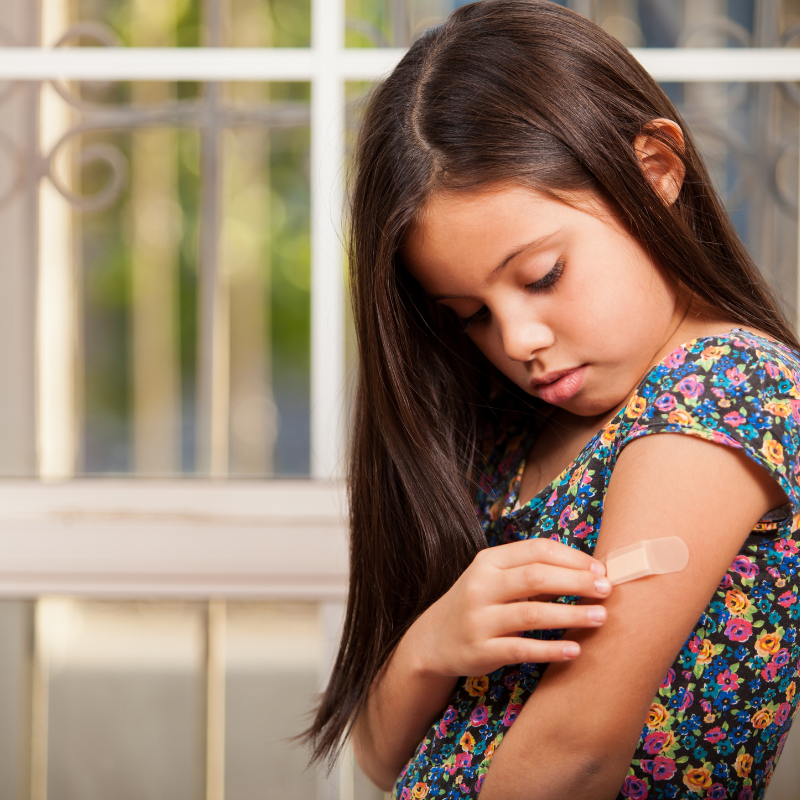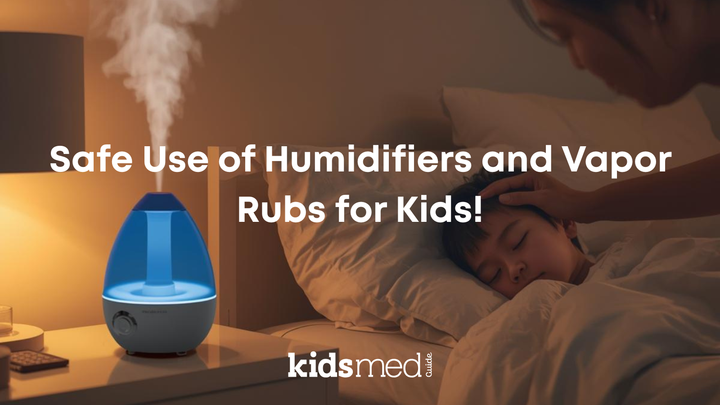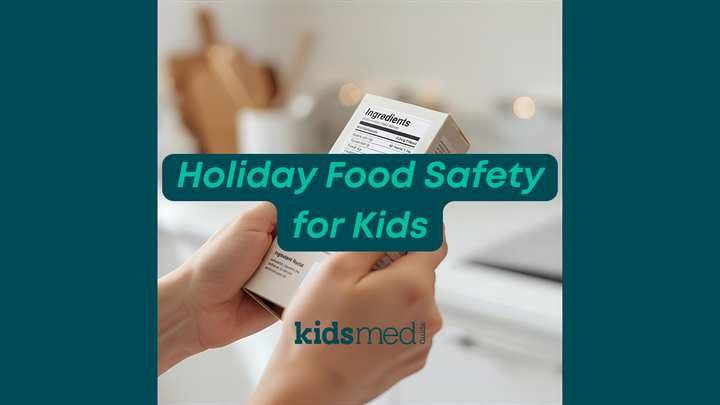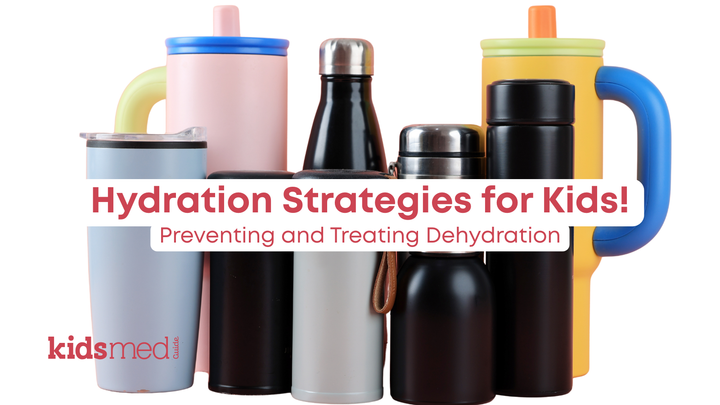Medicine Cabinet Must-Haves for Every Stage

Keeping your little ones healthy and happy is your top priority!
To help you feel ready for any surprises, we’ve created this quick guide on essential items to keep in your medicine cabinet for every stage of your child’s development. From newborns to school-age kids, we’ve got you covered!
Newborns & Young Infants (0-6 months)
Acetaminophen (Tylenol ®)
- Reduces fever and discomfort
- Only give to infants under 3 months of age under the guidance of a doctor
- Available in liquid or suppository form
Nasal bulb syringe & saline drops
- Gently apply nasal saline to the nostrils to break up sticky mucous
- Gently suction the nose using a nasal bulb syringe to clear the nasal passages
- Moisturizes the air to relieve dry nasal passages and airways
- Relieves cough, runny nose, and congestion
Digital thermometer
- A digital thermometer is essential for accurate readings
- Rectal thermometers are recommended for babies for precise measurement (purchase a lubricating agent like vaseline or petroleum jelly, as well as temperature sleeves for hygiene)
- Fever in babies under 3 months of age should be reported to the doctor
Simethicone
- Breaks up gas bubbles that can cause discomfort for babies
Vitamin D Drops
Infants 6 Months and Older & Toddlers
All of the above, plus:
Cold teething toys
- Teethers intended for babies and toddlers to chew and gum on are good for relieving teething pain
- Store them in the freezer to provide extra relief
- For fevers, pain relief, and teething
- Age 6 months and older
- Available in a liquid (use caution - two different concentrations are available)
Adhesive bandages, antibiotic ointments, & antiseptic wipes
- For cuts, scrapes, and boo-boos
- Bacitracin ointment is the preferred topical ointment because it has the lowest risk of skin reaction
- Water works well at home to clean cuts; gentle antiseptics or water wipes may be suitable for on-the-go use
Sunblock (SPF 30+)
- Babies aged 6 months and older should wear sunblock and UV ray-blocking clothing when possible
- Opt for a mineral-based, gentle formula intended for kids' delicate skin
Electrolyte solution (e.g., Pedialyte®)
- Important to have on hand for illnesses and dehydration
- Very useful to prevent or treat dehydration from GI bugs like norovirus
Honey (Age 1 year and older only!)
- A natural cough suppressant that works especially well for relieving nighttime cough
- Only to be used in infants 1 year of age and older due to the risk of botulism
Cold packs
- For icing bumps and bruises
Children (3 Years & Older)
All of the above, plus:
Antihistamine
- An antihistamine relieves itching associated with a rash, seasonal allergies, environmental allergies, insect bites, etc.
- Cetirizine (Zyrtec®) is an excellent option because it works well for many reactions, and it is not sedating
- Consult your pediatrician before use, especially for rashes or hives of unknown origin, or if you suspect an acute allergic reaction
Anti-itch cream
- Topical steroid or antihistamine creams, like Benadryl® cream, hydrocortisone cream, or calamine lotion, can be used to treat mild skin reactions such as poison ivy or contact dermatitis
- Check the package labeling to be sure the drug is appropriate for your child's age
Bug spray
- Older kids who play outside may need bug spray to protect them from mosquitoes and ticks
- Check the package labeling, as not all bug sprays are safe for young kids
- Make a tick check part of your nightly routine
Aloe vera gel
- For sunburn relief (but don't forget your SPF 30+ sunblock!)
Safety Tips:
- Store out of reach—Make sure all medicine is stored high up and out of reach of little hands. Consider a locked box or other child-proof mechanism.
- Check expiration dates – Regularly update your medicine cabinet, discarding expired items.
- Dosage matters – Always double-check dosages and consult your pediatrician with any questions. For liquid medications, use measuring devices like oral syringes that have markings in milliliters (mL)
Keeping these essentials on hand can help you handle everyday situations and focus on the fun stuff with your family!
Stay healthy,
The Kids Med Guide Team



